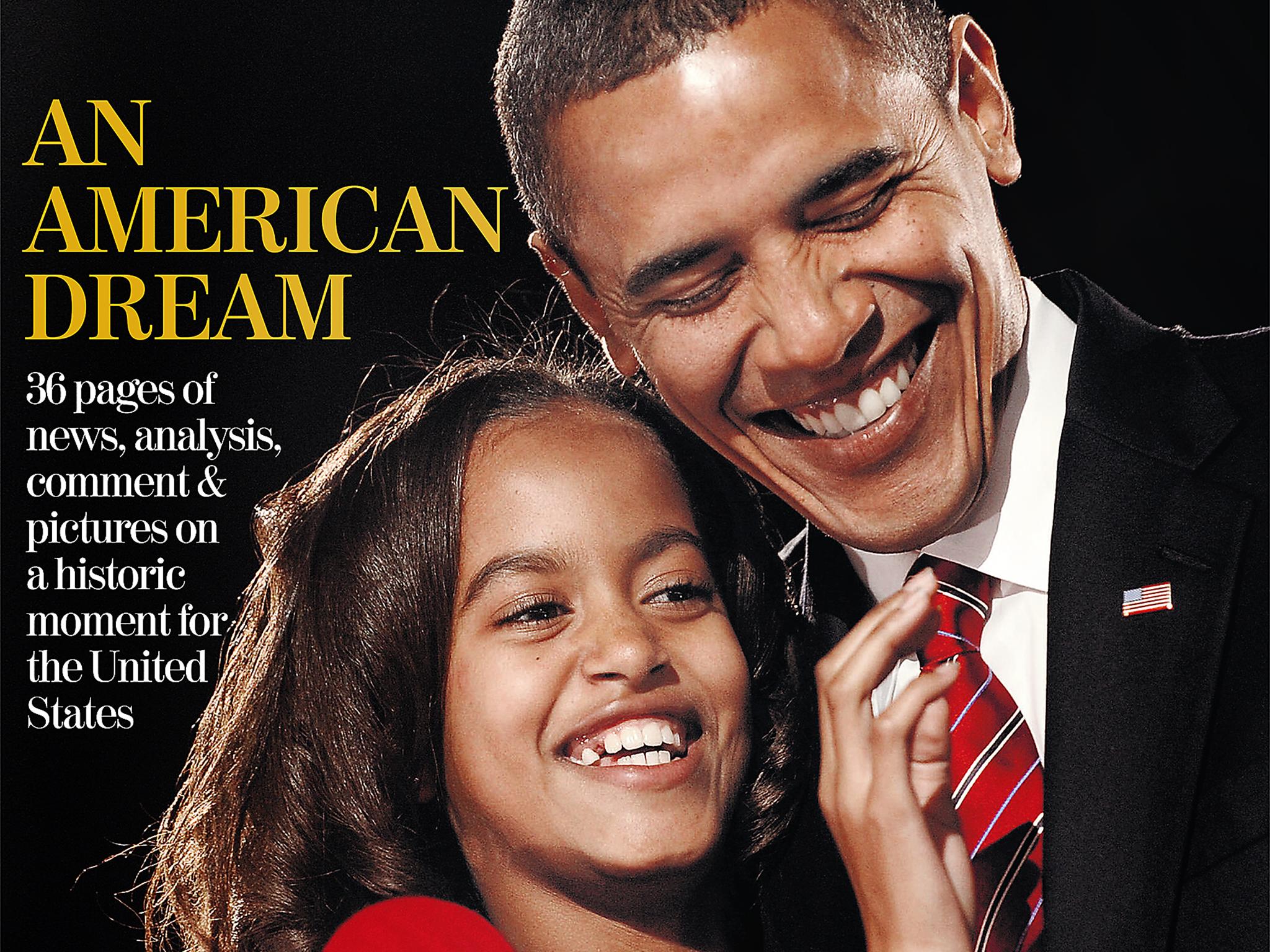US election 2016: How The Independent has covered America's presidential races
As one of the most dramatic campaigns draws to a close, we look back at 28 years of election coverage by The Independent

Since The Independent was founded in 1986, we’ve covered eight US elections, four winning candidates and countless campaign scandals along the way.
In 1988, grainy black and white images of George H W Bush peered out of printed broadsheet pages. Twelve years later, his son – George W Bush - would feature alongside Tony Blair and devastating images of the Iraq war, the world-changing conflict that would become his legacy.
With final aggregator polls point suggesting Hilary Clinton could feature as the next US president on a digital front page edition, we take a look back through some of the most iconic US election front pages over the years.
2012
President Barack Obama is re-elected to a second term, easily beating Mitt Romney, despite growing public dissatisfaction with the US economy.
His margin of victory decreases on his 2008 election win, but few polls predicted he would return with such a high lead – winning by 3.9 percentage points. The Obama and Romney campaigns topped $1bn each, making 2012 the most expensive presidential race on record.
2008
Democratic Senator Barack Obama wins an historic election, becoming the first black president of the United States.
He defeats Republican Senator John McCain 53 per cent to 46 per cent. Speaking in Chicago following the result, he says: “If there is anyone out there who still doubts that America is a place where all things are possible, who still wonders if the dream of our founders is alive in our time, who still questions the power of our democracy, tonight is your answer.”
2004
Incumbent President George W. Bush keeps his position, defeating Democrat candidate John Kerry with 50.7 per cent of the vote and 286 seats.
Bush’s first term as President will forever be associated with 9/11 and the Iraq War that followed – topics of national security that dominated the election, whilst Bush’s approval ratings continued to diminish as resistance to the conflict rose.
This didn’t stop him gaining a second term, however, with an aptly timed video of Osama Bin Laden taunting Bush over 9/11 just four days before voting opened leading to a surge in popularity for the Republican.
2000
One of the closest contests in US Election history. Republican George W. Bush is announced the winner after a recount and legal battle gives him Florida, a state that becomes vital to the outcome when the result until that point was too close to call.
While this means Bush won the majority of the electoral vote, by just 50.37 per cent to Al Gore’s 49.44 per cent, the Democrat candidate actually won the more popular vote, at 48.48 per cent. Questions of legality and mandate followed for a while after Bush followed in his father’s footsteps.
1996
Bill Clinton elected to a second term, defeating Republican Bob Dole, a former US senator from Kansas.
Two years later, the Democrats lose their majority in the House of Representatives for the first time since the 1950s; public support had dwindled as a result of some of Clinton’s choices over healthcare, and his proposal for allowing gay men and women to serve openly in the military.
1992
Bill Clinton wins his first term against Republican George Bush with only 43 per cent of the vote, as independent candidate Ross Perot secures nearly 19 per cent – the highest for any third-party candidate in a US presidential election in 80 years.
Bush had faced stiff challenges after backtracking on his promises to resist tax increases, making him public enemy number one.
1988
Republican George W H Bush defeats Democrat Michael Dukakis despite Dukakis coming out of the Democratic Convention with a 17-point lead.
Prior to that, the 1988 campaign had been seen as an open contest on both sides and several Democratic contenders entered the race, earning themselves the nickname of “The Seven Dwarfs”.
Subscribe to Independent Premium to bookmark this article
Want to bookmark your favourite articles and stories to read or reference later? Start your Independent Premium subscription today.

Join our commenting forum
Join thought-provoking conversations, follow other Independent readers and see their replies